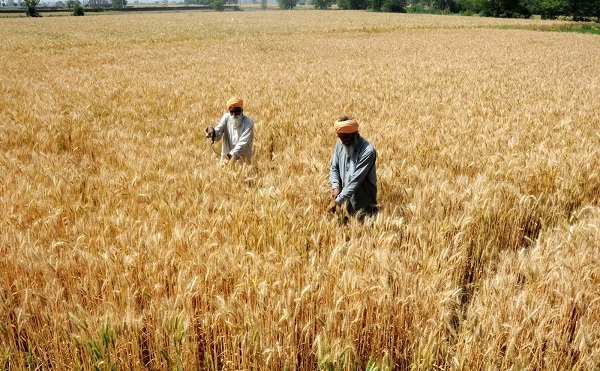New Delhi, While the Centre on Wednesday raised the minimum support price (MSP) for the rabi season crops like wheat, experts have slammed what they called a “modest” hike and went on to say that the “terms of trade are moving against agriculture”.
Former Union Minister and agricultural economist Y.K. Alagh told IANS that the wheat price increase is modest and way below the market price. “It’s extremely unlikely for large purchases by Food Corporation of India.”
He said it is not clear how the numbers have been arrived at. “One was hoping to get some reasonable explanations for the rabi crop price support numbers. It’s not clear if the Commission for Agricultural Costs & Prices (CACP) recommendations have been followed in the announcements made.”
Even on the MSPs for pulses, Alagh said these are again are way below market prices, so there is no support element in it. “The 150 per cent increase over costs excludes rental on land but the argument is that it is an unearned income. But land is scarce in India and the builder lobbies supporting political parties of all kinds in power get assured rentals on land and so do big corporates from mining leases,” he added that very little concern has been shown on the impact of late kharif rains on farmers’ incomes.
Alagh was also critical of the policy on agricultural tariffs. “If any attempt has been made to synchronising tariff policies for agriculture with MSPs, they have been kept a closely guarded secret. The farmer has been hit by insensitive imports of agricultural goods from countries which give high subsidies for exports. India, after two decades of holding out, has agreed to discuss non-agricultural issues, without the agricultural issues being resolved,” he said.
“No wonder the terms of trade are moving against agriculture. I am normally a cheerful kind of blighter, but the treatment of agriculture in policy is driving me to use cuss words,” Alagh said.
Sucha Singh Gill, Professor at the Centre for Research in Rural and Industrial Development (CRRID), Chandigarh said that apart from MSP for wheat and paddy, the other MSPs have no meaning because they are not implemented. “It is a meaningless exercise for other crops,” he said.
Gill said that the hike in wheat MSP is very inadequate and in the last few years, the grain prices have been kept low. Farmers’ incomes are not rising in sync with the cost of production, he added.
The Cabinet Committee on Economic Affairs (CCEA), chaired by Prime Minister Narendra Modi on Wednesday, approved the increase in the MSPs for all mandated rabi crops to be marketed in rabi marketing season 2020-21.
An official statement said the increase is in line with the principle of fixing the MSPs at a level of at least 1.5 times of the all India weighted average cost of production, which was announced in the Union Budget 2018-19.
For the rabi crops, the highest increase in MSP has been recommended for lentil (Rs 325 per quintal) followed by safflower (Rs 270 per quintal) and gram (Rs 255 per quintal).
The MSPs of rapeseed and mustard have been increased by Rs 225 per quintal.
For both wheat and barley, the MSP has been increased by Rs 85 per quintal. Wheat farmers will, hence, get a return over cost of 109 per cent.










